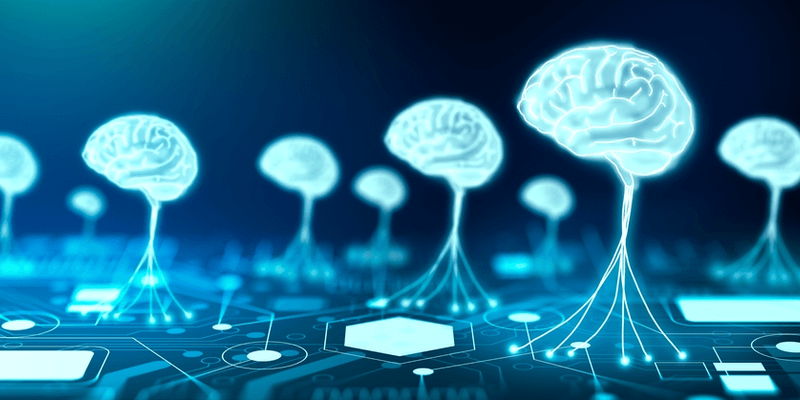
In today’s digital age, one of the most transformative trends is datafication. This process involves turning various aspects of our lives, behaviors, and environments into data that can be analyzed, monetized, and used to make decisions. From the apps we use to monitor our health to the smart devices in our homes, almost everything we interact with produces a vast amount of data. But what exactly is datafication, and why is it so significant?
What is Datafication?
Datafication refers to the transformation of social action and natural phenomena into quantifiable data. Whether it’s our online searches, social media interactions, or even our daily commute, the world is becoming increasingly “datafied.” In essence, it’s about converting elements of life into data points that can be captured, stored, and analyzed.
For example:
– Your daily fitness routine, tracked by a smartwatch, is converted into metrics like heart rate, steps taken, and calories burned.
– The products you purchase online create data about your preferences, spending habits, and potential future interests.
– Even cities are becoming “smart” through sensors that monitor traffic patterns, air quality, and energy consumption, turning them into actionable data insights.
Datafication isn’t limited to individuals; businesses, governments, and even ecosystems are increasingly part of the datafication process.
The Drivers Behind Datafication
Several key factors have enabled the rise of datafication:
1. Proliferation of IoT Devices: The explosion of connected devices, or the Internet of Things (IoT), has made it easier than ever to collect data. From smart refrigerators to autonomous cars, IoT devices are constantly generating data on how we interact with the world.
2. Advancements in Artificial Intelligence and Machine Learning: AI and machine learning technologies thrive on large datasets. The more data available, the more accurate AI predictions and decisions become, which in turn drives demand for even more data collection.
3. Cloud Computing: Storing and processing large amounts of data would be impossible without the development of scalable, affordable cloud storage. Cloud computing has enabled businesses to store vast amounts of information and analyze it on demand.
4. Social Media and Digital Platforms: Platforms like Facebook, Instagram, and Google have built business models around datafication. By collecting and analyzing user data, they create personalized experiences, and targeted advertising, and optimize user engagement, turning personal information into revenue streams.
The Benefits of Datafication
Datafication offers numerous benefits across various sectors:
Personalization: Businesses can deliver hyper-personalized services and products to consumers by analyzing data. Think of Netflix’s recommendations or Spotify’s personalized playlists.
Efficiency and Innovation: Companies can optimize their operations, identify inefficiencies, and innovate faster by analyzing real-time data. In industries like healthcare, for example, data can lead to better diagnostics and more effective treatments.
Predictive Power: The more data businesses and governments have, the better they can predict outcomes. This is especially useful in areas like urban planning, disaster management, and supply chain optimization.
Informed Decision-Making: For organizations, data-driven decision-making is becoming the norm. Leaders can now base decisions on real-world insights and trends rather than intuition alone.
The Dark Side of Datafication: Challenges and Concerns
While datafication offers many advantages, it also presents significant challenges:
1. Privacy Concerns: One of the biggest criticisms of datafication is its impact on privacy. When every action is tracked and recorded, individuals may feel like they’re under constant surveillance. Moreover, data breaches can expose sensitive personal information.
2. Data Misuse and Bias: Algorithms built on biased data can perpetuate societal inequalities. For example, data-driven policing or hiring practices can reinforce existing biases, leading to discriminatory outcomes.
3. Monetization of Personal Data: Data has become one of the most valuable resources globally. However, individuals often have little control over how their data is used or sold. This leads to ethical concerns about consent and the commodification of personal information.
4. Data Overload: As more and more data is generated, organizations may face the problem of data overload. Without proper analysis and processing tools, large amounts of data can overwhelm systems and lead to ineffective decision-making.
5. Regulation and Compliance: As governments recognize the impact of datafication, regulations like the General Data Protection Regulation (GDPR) in Europe have been introduced to give consumers more control over their data. However, these regulations vary globally, creating complex compliance challenges for businesses.
The Future of Datafication
As datafication continues to expand, its role in our world will only deepen. Here are a few trends that are likely to shape the future:
Data Sovereignty and Ownership: Governments and individuals will push for more control over their data, with a focus on data sovereignty — the idea that personal data should remain within the jurisdiction of the individual’s country.
Ethical AI and Fair Data Practices: There will be an increased emphasis on creating ethical frameworks around AI and data usage to minimize bias and ensure fairness.
Decentralized Data Networks: Technologies like blockchain may allow for decentralized data storage and ownership, potentially giving individuals more control over their data.
Enhanced Data Security: As the volume of data grows, so too will the importance of security measures to protect sensitive information from breaches and misuse.
Conclusion
Datafication is undoubtedly a double-edged sword. It has the power to revolutionize industries, improve decision-making, and create new opportunities, but it also brings about privacy concerns, ethical challenges, and regulatory complexities. As the world continues to embrace datafication, striking a balance between innovation and the protection of individual rights will be crucial to ensuring that data is used for the benefit of society as a whole.
